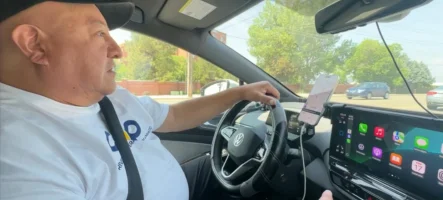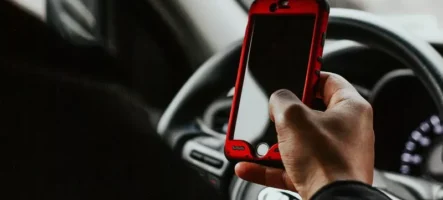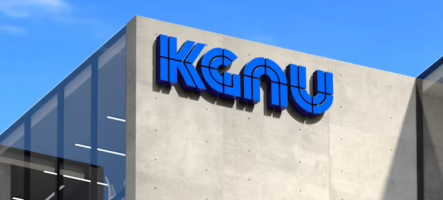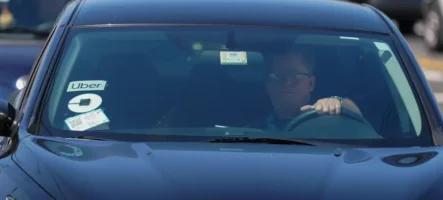Donate

Driving Change: The Drivers Cooperative Colorado Story
Imagine you’re a rideshare driver on a cold, snowy evening in Denver. The roads are slick, the air crisp, and every ride counts. You accept an airport trip—the kind that promises a decent fare. You greet the passenger, assist with their luggage, and deliver a smooth, professional ride. The passenger paid at least $80, but when you check your earnings, you see you received just $15. This injustice—routine in Big Tech apps—leaves you struggling to support your family.
Now, imagine waking up the next day to find your driver account deactivated—no warnings, no timeline, just silence. Without income, the bills pile up. This scenario is far too familiar: Boulder–Denver rideshare drivers earned an average of $5.49 per hour in 2022—well below minimum wage—with less than half of fares going to drivers. It’s clear the current system is broken.
A Vision of Ownership
What if drivers owned the platform they relied on? What if they had a vote, a share of the profits, and control over their work? That’s exactly the alternative the Drivers Cooperative Colorado (DCC) is building—a driver-owned, democratic alternative to Uber and Lyft. Since launching in September 2024, DCC has grown rapidly: over 620 members, 12,000 riders, and 3,000 drivers on track to become owners.
DCC offers two core apps—COOP Rideshare for riders, COOP Drivers for drivers—powered by a model that returns 80% of each fare directly to drivers, eliminating the corporate middleman. Without fat CEO salaries or opaque algorithms, every dollar stays in the community.
“This is the future starting now,” says Taiyelolu, a driver-member who completed over 200 rides within his first month .
Grounded in Community
This movement began in 2022, in the Denver International Airport parking lot. There, labor activist Minsun Ji, Executive Director of the Rocky Mountain Employee Ownership Center (RMEOC), handed out fliers that asked: “WHAT IF DRIVERS OWNED THE PLATFORM?”.
Mohammed Ishag, a Sudanese immigrant working for Uber and Lyft, listened and answered the call. That spark led to training sessions, steering committees, and eventually, official incorporation in May 2023.
The journey wasn’t easy. DCC had to lobby for new legislation to reduce Transportation Network Company licensing fees from over $111,000 to just $16,000 per year. They waited five months to secure insurance and spent two years fundraising to build the apps. Their perseverance paid off with a September 2024 launch and a formal proclamation from Denver for their community impact.
Diverse & Driven
Over 70% of DCC’s driver-members are immigrants from Africa, Asia, Latin America, and the Middle East, who viewed driving as a lifeline in their new homeland. Leaders like Ahmed (Morocco), Isaac (Africa), Abdullahi (Somalia), and Mohammed and Mohamed (Sudan) have shaped the cooperative from the start—bringing rich perspectives to the board and daily operations.
As general manager Isaac Chinyoka puts it:
“Most of the drivers have had a situation where their voice is not heard… here, as part of this coop, they can speak their mind. They feel they belong.”
A Fairer, Transparent Future
On our platform, fare breakdowns are clear. A $20 ride itemizes: $16 to the driver, $4 to the coop—no mystery, no hidden fees . Riders appreciate this transparency; drivers love it.
And there’s more: the coop requires background checks, insurance documentation, and dash cams, prioritizing trust and safety. It even offers scheduled rides and wheelchair-accessible vehicles, making it a lifeline for seniors, people with disabilities, refugees, and those recently released from incarceration.
Partnerships, like with Colorado Cross-Disability Coalition, ensure mobility for individuals rebuilding their lives. The coop even offered a victory lap: the Colorado Legislature passed a reduced-fee law so the coop could launch, and Denver recognized their community contributions later that year.
Growing the Cooperative Revolution
In just months, DCC has attracted over 4,600 drivers and 15,600 riders across Colorado markets including Denver, Colorado Springs, Fort Collins, and Vail. By mid‑2025, they aim to reach 2,500 drivers and continue expanding.
Their long-term goal? A national Federation of Driver Cooperatives that shares tech, funding, and resources—beginning with replicating Colorado’s success elsewhere.
Indeed, similar co‑ops have emerged in New York since 2021, and there are talks now in cities like San Diego, showing that the model scales—and resonates.
Join the Movement
From snowy airport runs to boardroom decisions, the DDC stands for equity, empowerment, and community. Your support invests in:
- Fair wages
- Ownership
- Dignity and safety
This isn’t just about rides—it’s about rights. It’s people over profit. It’s democratized rideshare. And with your help, it’s a movement that can reshape the gig economy nationwide.
Drive change. Empower communities. Support the Colorado Drivers Cooperative today.
Stories of our impact across Colorado
Subscribe to Our Newsletter
By subscribing our newsletter, you will receive the most updated news about our coop and coop movements in the U.S. Be a part of the movement!







